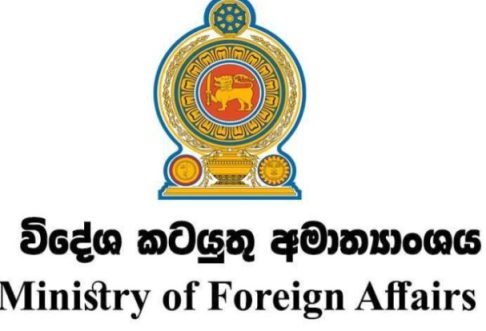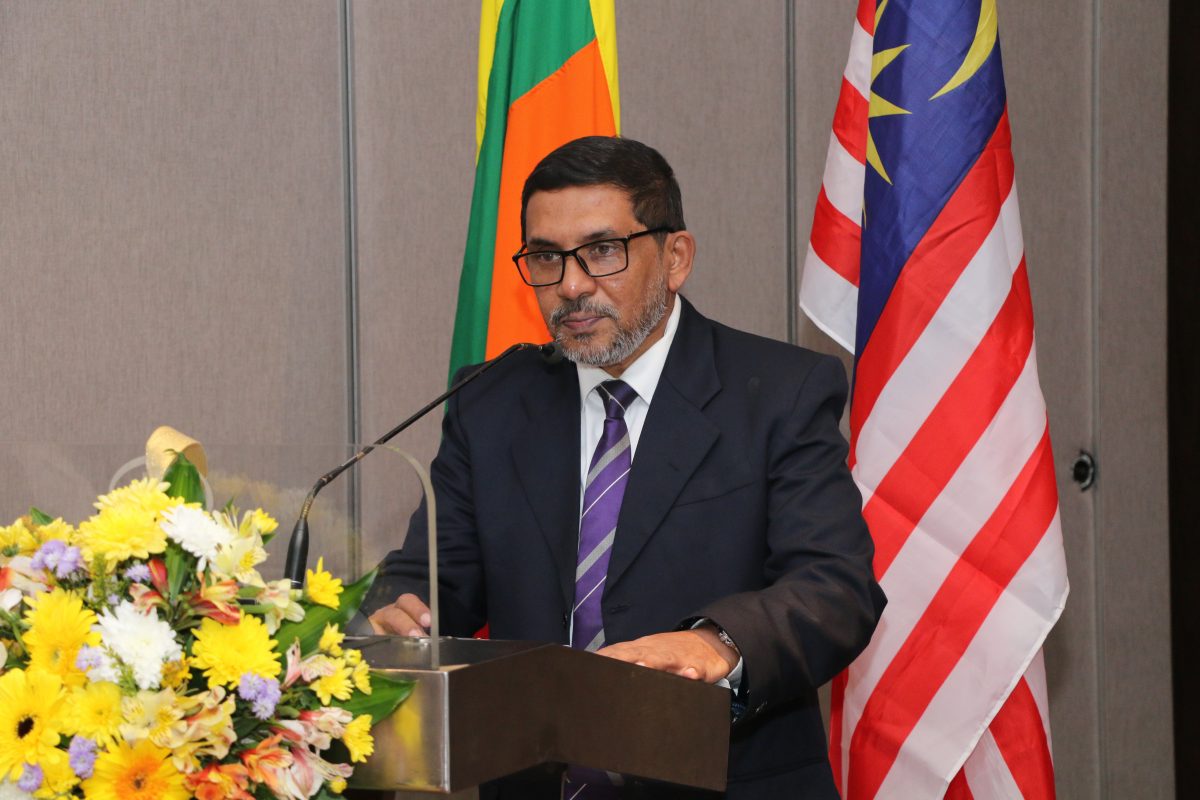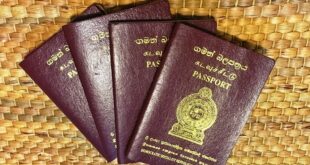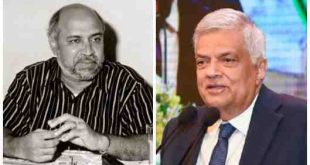All Ceylon Jamiyyathul Ulama President M.I.M. Rizvi Mufthi’s speech in Riyadh on Friday 4 May 2012 on the attack on the Dambulla Mosque has shocked the island’s Muslim community. For a moment I asked myself whether he has been dispatched by the mob leader Innamaluwa Sumangala Thera for canvassing in favour of demolishing the mosque.
In his speech, published in the Jeddah based “arabnews” and reproduced in Sri Lankan dailies-Daily Mirror and Ceylon Today- on 7 May 2012, Rizvi Mufthi has called for resolving the Dambulla issue, imposed on the Muslim community by violence, amicably through tolerance and COMPROMISE.
Justifying this call he said the Line Mosque in Kandy was demolished for society development projects and the Nimal Road Mosque at Bambalapitiya was demolished, and built far away, to accommodate the highway that was constructed in the neighborhood.
This was misleading. Muslims in Kandy point out that no Mosque in Kandy, including Line Mosque, was ever demolished or shifted.
Even in the case of Nimal Road Mosque the owners of the land said that it was not built far away. Instead the new mosque was built few yards away from the site where the old mosque was located. They explained that the old mosque was located few yards from the railway line. In the subsequent years the old mosque was expanded to conduct Ahadiya classes. However the mosque paved the way for the marine drive and the present mosque was built few yards behind, leaving space for the construction of Marine Drive. The beauty of this is that this was done peacefully and not on the instigation of unruly mobs.
In suggesting for a peaceful solution Rizvi Mufthi had spoken on the need for “compromise” which suggests the demolition of the Dambulla mosque. If this is what he implied then it is simply rewarding of hooliganism. What he has failed to highlight is that the call for the demolition of Dambulla Mosque was not made by the Sinhalese in Dambulla or the mainstream Sinhalese community in the country which feels embarrassed by saffron vandalism.
While the Opposition Leader Ranil Wickremasinghe still remains silent the UNP Deputy Leader Sajith Premadasa said in public that this has nothing to do with Buddhism. Meanwhile numerous Sinhalese columnists dismissed the attack on the Dambulla mosque as a despicable act and one columnist even went to the extent of describing the mob as “mad men of Dambulla”.
This vandalism is suspected to be the work of a small minority of ultra nationalists who managed to get into influential positions in the government. Ever since the military defeat of the LTTE these ultra nationalists unleashed a vicious campaign community against Islam and Muslims inciting the majority.
It began using ten Sinhala language and nine English language websites. They also produced a documentary on Daftar Jailani, Kuragala, accusing Muslims of grabbing this land which they claim belong exclusively to Sinhalese
In view of the threat to communal harmony I highlighted this in an article in Sunday Times in September 2011.As usual Muslim politicians, theologians and all others slept. Then a mob taken from outside destroyed a Muslim shrine in Anuradhapura. Here too Buddhist monks led the mob. And now comes the move to demolish the Dambulla mosque. Even in this case though the mob leader was a local monk the mob was brought in from outside the area.
What these unruly elements do not realize is that this destructive anti Muslim campaign has all the potentials to tear apart the country which has just emerged from a three decade of savage ethnic carnage.
It was in this context one needs to view Rizvi Mufthi’s call for compromise.
Long before Muslim politicians and theologians came to the scene, the spontaneous response of the entire Muslim community to the vandalism at Dambulla Mosque has been” peaceful and dignified”. Their only slogan was” communal harmony”.
However compromise in this case, as claimed by Rizvi Mufthi, means rewarding lawlessness as Prime Minister D.M.Jayaratne’s office had done when it ordered the demolition of the mosque within 24 hours after the mob attack. It would also set an extremely dangerous precedence. Any dispute between communities, not with mobs, need to be solved in a civilized manner within the framework of the laws of the land and the entire Muslim community insisted on this with one voice.
This is a burning issue which is to be sorted out within six months as decided by a committee of Sinhalese government officers. No Muslim was involved in taking this decision .Under the circumstances, it would have been appropriate for Mufthi Rizvi to place facts before the audience, rather than suggesting solution which, it appears, would be at the expense of the rights of Muslims.
It appears Mufthi Rizvi has overstepped his limits. As the president of All Ceylon Jamiyyathul Ulema, not a Vatican with a Pope, his job is to guide the community according to religious principles. However here he has entered the corrupt, criminalized and commercialized field of politics. This is a dangerous and already people are talking of the need to clearly earmark the role of the Jamiyyathul Ulema as a religious, and not a political, organization.
There is also a growing feeling among the Muslims that Jamiyyathul Ulema should consult the community before taking any decision on behalf of the community.
Rizvi Mufthi owes an explanation to the community.
Post Disclaimer | Support Us
Support Us
The sailanmuslim.com web site entirely supported by individual donors and well wishers. If you regularly visit this site and wish to show your appreciation, or if you wish to see further development of sailanmuslim.com, please donate us
IMPORTANT : All content hosted on sailanmuslim.com is solely for non-commercial purposes and with the permission of original copyright holders. Any other use of the hosted content, such as for financial gain, requires express approval from the copyright owners.
 Sri lanka Muslims Web Portal Diversity and Inclusiveness – Sri Lanka Muslims
Sri lanka Muslims Web Portal Diversity and Inclusiveness – Sri Lanka Muslims




I read Rizvi Mufti’s controversial speech in Riyadh and the response of veteran Sri Lankan journalist Latheef Farook.
In his speech it was obvious that Rizvi Mufti has, perhaps to please the government, suggested the demolition of the Dambulla mosque. He justified this by citing Kandy Line Mosque and Bambalapitiya Nimal Road Mosque.
Cut away from the ordinary people Rizvi Mufti never expected anyone to respond. But the response of Brother Farook caught him off guard.
If the Mufti disagrees with Brother Latheef Farook, all what he had to do is to explain what had happened. However up to date he had failed to respond.
Instead Mufti Rizvi tried to hide behind Jamiyyathul Ulema which has nothing to do with his irresponsible and arrogant utterance. He got Jamiyyathul Ulema to issue a statement and Moulavi Mubarak to sign it. What has Jamiyyathul Ulema got to do with this? Rizvi Mufti is not Jamiyyathul Ulema and Jamiyyathul Ulema is not Rizvi Mufthi. Although he thinks and behaves as if he is ACJU . The question is why should ACJU take responsibility for his personal views.
It appears Moulavi Mubarak, a soft spoken man known for his piety and impeccable honesty and integrity was made a scapegoat? What is the relevance of Hudaibiya Agreement to Rizvi Mufti’s foolish statement?
It is time, rather than sponsoring his unbaked “ mureedhs” to write comments and confuse the community, Rizvi Mufti comes down from the sky where he lives with his wealthy businessmen and try to understand the mood of the suffering Muslims before it is too late. He should understand that no one can compromise on Islam or the rights of Muslims.
Shaikh Sheriff
Responding to brother Sultan and Roshan's comments, it is very evident from their open behaviour that the so called today's Ulema/Alim or Moulavis (now self styled as ASH-SHEIKH'S) have in fact taken to national politics rubbing shoulders with Politicians. This is a pathetic situation.
Commercialization of fatwas and aligning with the businessmen with vested interests is becoming a way of life for them. Moulavis are now offering their self-appointed titles to serve in Shari'ah Advisory Councils of Islamic and Non-Islamic Financial Institutions to market their banking products to gullible muslims to invest. What banking qualifications do these Moulavis have, besides basic banking knowledge – what more for sophisticated financial instruments.
In short, these financial institutions have successfully recruited (of course for a fee or in kind like free trips to Saudi!) the greedy Moulavis to lend their names to legitimize (as Halal financial products) and solicit customers to market products and other services.
It's a matter of time when the Moulavis will be company board members or will sit in artificially created Halal Advisory Bodies to manufactures of products, etc etc. It is partly the muslim community to be blamed for today's sad state of affairs of our Moulavis – they prefer to be addressed as ASH-SHEIKH'S instead!
Please confine yourself to the masjid and uphold your dignity in the eyes of the nation. Leave Politics to Politicians…Do we remember how a former post colonial and much feared PM warned the clergy not to get involved in politics then! The rest is history now…
During the lifetime of the Prophet there was no body of people known as the ulema. Nor is there any evidence of their existence during the time of the first four caliphs. They imposed themselves at a later stage and formed a partnership with the rulers of the day who needed the moral authority for their rule. Men knowledgeable in religious matters came in handy for this purpose.
Historically, the ulema found this association useful for their own purposes and arrogated to themselves the authority to make pronouncements on various matters. Muslims will say that there is no priesthood in Islam but in reality we have a body of men who behave like there is one. The distinctive dress, the long beard and the cap are the features that they use to make themselves a group apart.
For far too long the Muslim community has avoided discussing the role that the ulema should play in their affairs and instead allowed themselves to be led by these self serving men using religion as an excuse. There is no point in trying to sweep this issue under the carpet and adopt the position that we should not say anything to ruffle the feathers of some people.
The ulema should keep out of politics for a start.
Would appreciate if some learned muslims could shed some light on the National title of "Mufthi" and "As Sheikh" as Moulavis in Sri Lanka are now known as. The title of a "Muthi" is by appointment of the highest body or the Minister in charge of Muslim Affairs. What jurisdiction the ACJU has in appointing the Mufthi of the Nation. What qualifications are required to be a Mufthi? On the same note, we would also like to know why "Moulavis" are now known as "As Sheikh". Is this a glorious title of self appointment for national/international recognition. The present day Moulavis are seeking political alliance and may form a party in the future like what the buddhist clergy did to enter parliament. This is a dangerous trend and some serious thought is required. Understand Al-Azhar graduates of theology and Al-Qur'an are bestowed the title of As Sheikh and the National title of Mufthi is also regulated by the highest islamic body. The next time we will see the Moulavis in Arab robes and the red fez like cap with a white border instead of the tussell!?
Abu Jameel has hit the nail on its head.
In one of the websites Mufti Rizvi is described as "One of the pioneering scholars in the field of Islamic Banking and Finance he is a member of Shari’ah Advisory Council for a number of Islamic Financial Institutions in Sri Lanka." Could we know what qualifications he has obtained in order to justify this description?
We have journalists and journalists, but only Mr. Latiff Farook writes on issues we Muslims face here. He wrote an article on the demolition of a shrine
in Anuradhapura. BBC carried the news and at the end of day Gothabaya order that the shrine be restored to its original position. Sad to say one Muslim
Br. wrote " what we Muslims fail to do, Allah has got the Kafir to do". Let us first put our house in order.
Mr. Latiff Farook is not known to me personally. But he is one journalist who often writes articles on local and international issues facing the Muslim Ummah.
The article in question was written in response to what the Arab News carried. The journalist in Saudi Arabia has mixed up what was said at the public meeting and his private conversation with with Rizvi Mufthi. It extremely unfair to blame Mr. Latiff Farook for his writing.
I find it rather curious that Mufti Rizwi must go all the way to Saudi Arabia to make his speech. He was last seen on the front pages of news papers standing by the side of the President at an opening ceremony of a mosque in some part of Sri Lanka within days of the attack on Dambulla mosque.
In days gone by, when issues affecting the Muslim community arose, the community turned to men such as Dr Jayah, Sir Razik, Badiuddin and the like to give leadership and voice their concerns. I suppose it is a sign of the times and a reflection of the depths to which the community has fallen that muftis and ulema have invaded the space occupied by such men to shape the community’s response to major issues affecting them.
The Muslim community has itself to blame. While it must be said that the community has made some progress in education, compared to other communities, the respect for education – and educated men and women- within the community is lacking. Men of education do not command the same respect as men with money, regardless of how it is made. The Muslims are in awe of multi millionaires than men of knowledge.
The ulema are partly responsible for this state of affairs. They canoodle with the rich in order to secure their patronage and feel uneasy when they are among the educated. The jumma sermons all over the country- and I must say in most parts of the world- are nothing but an exercise in ‘grinding flour’. You can hear the same sermons recycled in regular intervals and very little attention is given to encouraging those in the congregations to the pursuit of secular knowledge and the acquisition of skills that would enable them to advance in life. You will not learn very much about the real message of Islam by listening to them.
The alims are incapable of giving such advice or guiding the young – and even the not so young- out of their depressing condition. I sometimes wonder whether they are afraid of losing their hold within the community if they do so.
The community has to wake up and free itself from the suffocating influence that is exerted by the ulema, if it is to free itself from the very depressing and sad condition in which it finds itself.
The All Ceylon Jamiyyathul Ulama (ACJU) regrets the misinformation carried out by certain sections of the media on the statement made in Riyadh, Saudi Arabia by our leader Al Sheik Rizwe Mufti.
Nowhere did Al Sheik Rizwe Mufti call for the demolition or relocation of the Mosque in Dambulla, nor does the All Ceylon Jamiyathul Ulama subscribe to such thought. Our call is to ensure that vested interests do not take advantage of the heightened tension in the Dambulla area and create a rift between the Buddhist and Muslim Community. We have called for a solution through constructive dialogue with the relevant authorities and not let radical elements take the law to their own hands.
The reference to the Kandy Line Mosque and Nimal Road mosque needs reminding that our community made a conscious decision which resulted in finding the best solution. Both mosques were developed without any conflict.
Islam has provided answers to solve any issue facing the Ummah, and our beloved Prophet (PBUH) has shown us the way in resolving crisis situations.
One such example is the Treaty of Hudaibiya which initially seemed as if our Prophet (PBUH) was ‘giving in’ to the enemies. However the wisdom of that decision was apparent to the Sahabas only much later when the Muslims walked back into Mecca without blood-shed. Hence it is clear that we need to take decisions after careful thought than resort to knee-jerk reactions, which might exactly be what the enemies want.
In recent post war Sri Lanka, the All Ceylon Jamiyyathul Ulema has been called upon to find solutions to many civil issues in relation to the Muslim community. Successful interventions to many of these have been made in consultation with our Civil and Political leadership. The All Ceylon JamiyyathulUlema will continue to take this approach and Insha Allah find solutions to the Dambulla crisis and other issues facing our community.
We respect and value diverse views from members of our community, as it would only enrich and contribute to the decisions the All Ceylon Jamiyyathul Ulema takes for the welfare of our people. The need of the hour is not to be confrontational but to take a united stand to resolve all issues which come our way.
The All Ceylon Jamiyyathul Ulema calls upon all Muslims to remain calm and not be provoked by vested interests.
Ash-Shaikh M.M.A. Mubarak, General Secretary – All Ceylon Jamiyathul Ulama – 15.05.2012